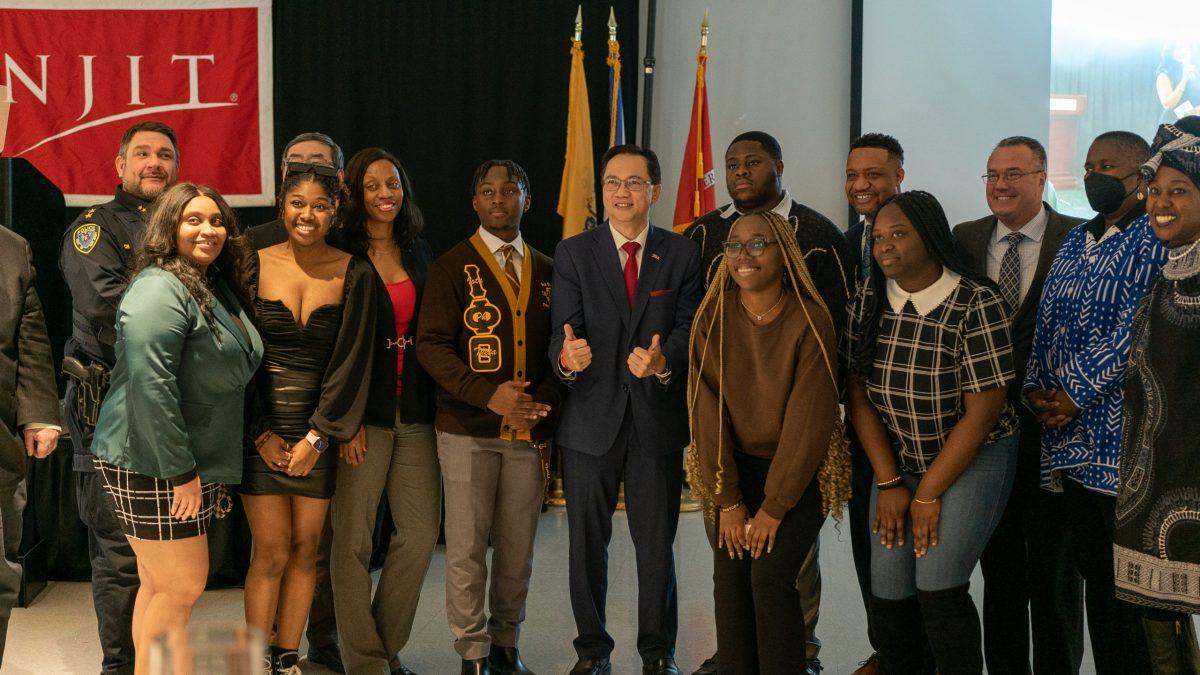Black History Month, celebrated from Feb. 1 to March 1 every year, was officially recognized by former United States President Gerald Ford in 1976 and has been celebrated annually ever since. This time period honors Black Americans’ contributions to the art, science, literature, society, and culture of the United States. February was initially chosen due to the coincidence of the birthdays of former United States President Abraham Lincoln on Feb. 12 and abolitionist Frederick Douglass on Feb. 14.
The first event of the month, “Black History Month Opening Ceremony,” took place on Feb. 1, featuring speeches from new Chief Diversity Officer Dr. David Jones, Dean of Students and Campus Life Dr. Marybeth Boger, and University President Dr. Teik Lim. Jones spoke passionately about justice for Black citizens, saying the names of recent victims of police brutality, discrimination, and violence.
The talk focused on the idea that working together as a community is the most fruitful path to systemic change. “While all of this hate continues to impact people by a system that was not designed for them, none of us are truly liberated,” he said. Jones pointed out the violence perpetrated against the Lenni Lenape people, who were the original residents of the New Jersey and west Pennsylvania areas.
He went on to describe the oppression faced by enslaved African-Americans and recent violence towards Asian people, the LGBTQ community, and Jewish people. Jones’ speech ended with a call for community members to “live as visionary leaders of love. I joined the NJIT community,” he said, “so I could contribute in this way.”
Lim listed Jones, benefactor and Board of Trustees vice chair Norma Clayton, and ’88 alumnus Clifford Samuels as three of his biggest inspirations when considering the promotion of diversity on the NJIT campus. “The impact of Black culture and history as well as Black Highlanders themselves on our university cannot be overstated,” he said. “The diversity of this campus is one of its greatest strengths.”
Citing statistics showing NJIT’s position as one of the top public universities in terms of diverse STEM involvement, Lim commented, “62% of all engineering degrees awarded to African-American and Hispanic students by New Jersey public institutions are awarded by NJIT.” He also mentioned that NJIT was recently honored as one of the top 20 institutions for Black engineers.
Lim continued, “We are fortunate to be one of the most diverse campuses in the nation, and celebrating our diversity is a badge of honor for NJIT. This event is important for everyone who makes up our diverse family.”
Lastly, Boger spoke about the relationship between administrators and students, stressing that students should feel comfortable reaching out to staff members with their concerns. “We need to look out for each other,” she said, “because we have work to do as a community for the betterment of NJIT and beyond.”
Almost every weekday of February, events have been planned by organizations including the African Students Association, the National Society of Black Engineers, the Black Students Union, Iota Phi Theta, and the Caribbean Students Organization. A full schedule can be found in the Campus Center, next to the entrance to Highlander Commons.
Standout events included “Don’t Touch My Hair,” by the African Students Association, hosted from 6–9 p.m. on Feb. 9. Participants learned about different hair types and had the chance to win conditioners, wigs, durags, and Black History Month sweatshirts.
The Murray Center will host a panel with Shalini Kantayya, director of “Coded Bias,” a documentary featuring scientists such as Joy Buolamwini, which focuses on the inability of algorithms to identify Black citizens’ faces, which can have disastrous and dehumanizing results.
From 7–11 p.m. on Feb. 23, the National Society of Black Engineers will host their 11th annual Dr. Martin Luther King Jr. Dinner, honoring students, faculty, and corporate sponsors. For the first 50 NJIT students, admission will be free; after that, a table costs $200.




























